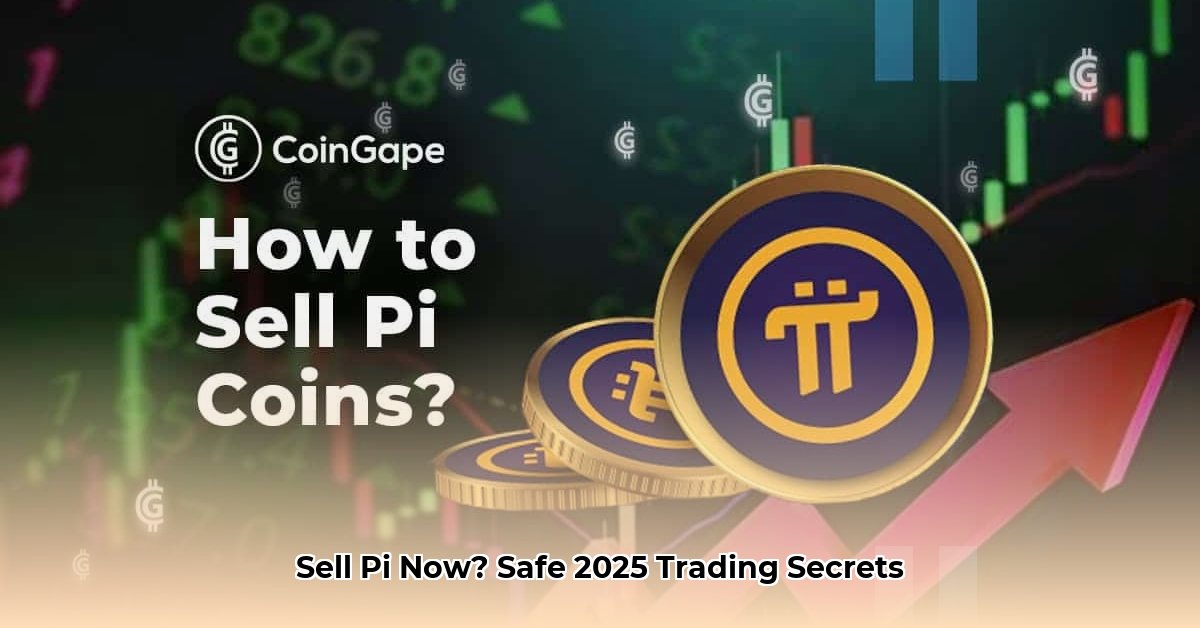
Where Can I Sell My Pi Coins?
Thinking about selling your Pi coins? This guide provides a clear, actionable path to navigating the complexities of Pi coin trading, whether you're a seasoned cryptocurrency investor or just starting out. We'll cover pre- and post-mainnet trading options, risk mitigation strategies, and crucial regulatory considerations. Remember, the cryptocurrency market is inherently volatile; proceed with caution and informed decision-making.
Pre-Mainnet Trading Options: Navigating the IOU and P2P Landscape
Before the Pi Network's mainnet launch, trading Pi coins involves unique challenges and heightened risks. Your primary options are trading IOUs (I Owe You) on smaller exchanges and engaging in peer-to-peer (P2P) transactions.
1. IOU Trading on Smaller Exchanges:
IOUs represent a promise of Pi coins after the mainnet launch. These trade on less established exchanges. While offering early access to Pi, the inherent risk is significantly higher, primarily due to the speculative nature of the IOUs and the potential unreliability of smaller exchanges.
- Process: Find a platform listing Pi IOUs; create an account; buy or sell IOUs.
- Risks: High fraud risk, high value loss risk due to exchange instability and the speculative nature of IOUs. The exchange itself might be unreliable or even a scam.
- Mitigation: Thoroughly research the exchange; check online reviews independently verify its legitimacy; never invest more than you can afford to lose.
2. Peer-to-Peer (P2P) Trading:
P2P trading involves direct transactions between individuals, often online or in person. While potentially offering more control, this method carries significantly higher risk.
- Process: Find a buyer or seller; agree on a price and payment method; complete the transaction.
- Risks: Very high fraud risk; no buyer protection; value loss risk due to lack of price transparency and potential for scams.
- Mitigation: Use reputable P2P platforms; if meeting in person, do so in a public place; verify the other person's identity before proceeding; consider using escrow services.
Risk Assessment Matrix:
| Trading Method | Fraud Risk | Value Loss Risk |
|---|---|---|
| Online P2P Trading | Very High | Very High |
| Offline P2P Trading | High | High |
| IOU Trading on Smaller Exchanges | Moderate to High | Very High |
Isn't it concerning that the risk matrix shows a high probability of fraud in all options? What steps can you take to mitigate these risks?
Post-Mainnet Trading Strategies: Capitalizing on Mainnet Launch
Once the Pi Network's mainnet launches, the trading landscape changes significantly. However, success is not guaranteed, and careful planning remains crucial.
- Exchange Listings: Major exchange listings increase liquidity and price stability, making trading significantly easier. However, initial price volatility is to be expected.
- Ecosystem Utility: The success of the Pi Network's applications directly influences Pi's value. Wider adoption and utilization of Pi within the ecosystem will enhance its value.
- Diversification: Diversifying your crypto portfolio minimizes risk. Don't concentrate your investment solely in Pi.
Regulatory Considerations: Navigating the Legal Landscape
Cryptocurrency regulations vary considerably by jurisdiction. Compliance with KYC/AML (Know Your Customer/Anti-Money Laundering) regulations is critical to avoid legal issues, especially when using established exchanges. Staying informed about the evolving regulatory landscape is essential for safe and compliant Pi coin trading.
Conclusion: A Cautious Approach to Pi Coin Trading
Trading Pi coins, particularly before the mainnet launch, is inherently risky. Understanding the various trading options, their associated risks, and the importance of regulatory compliance are paramount. Always conduct thorough research, diversify your portfolio, and never invest more than you can afford to lose. Remember, this information is for educational purposes only and does not constitute financial advice.
Disclaimer:
Investing in cryptocurrencies involves significant risk. You could lose money. This information is for educational purposes only, and not financial advice. Consult a qualified financial advisor before making any investment decisions.